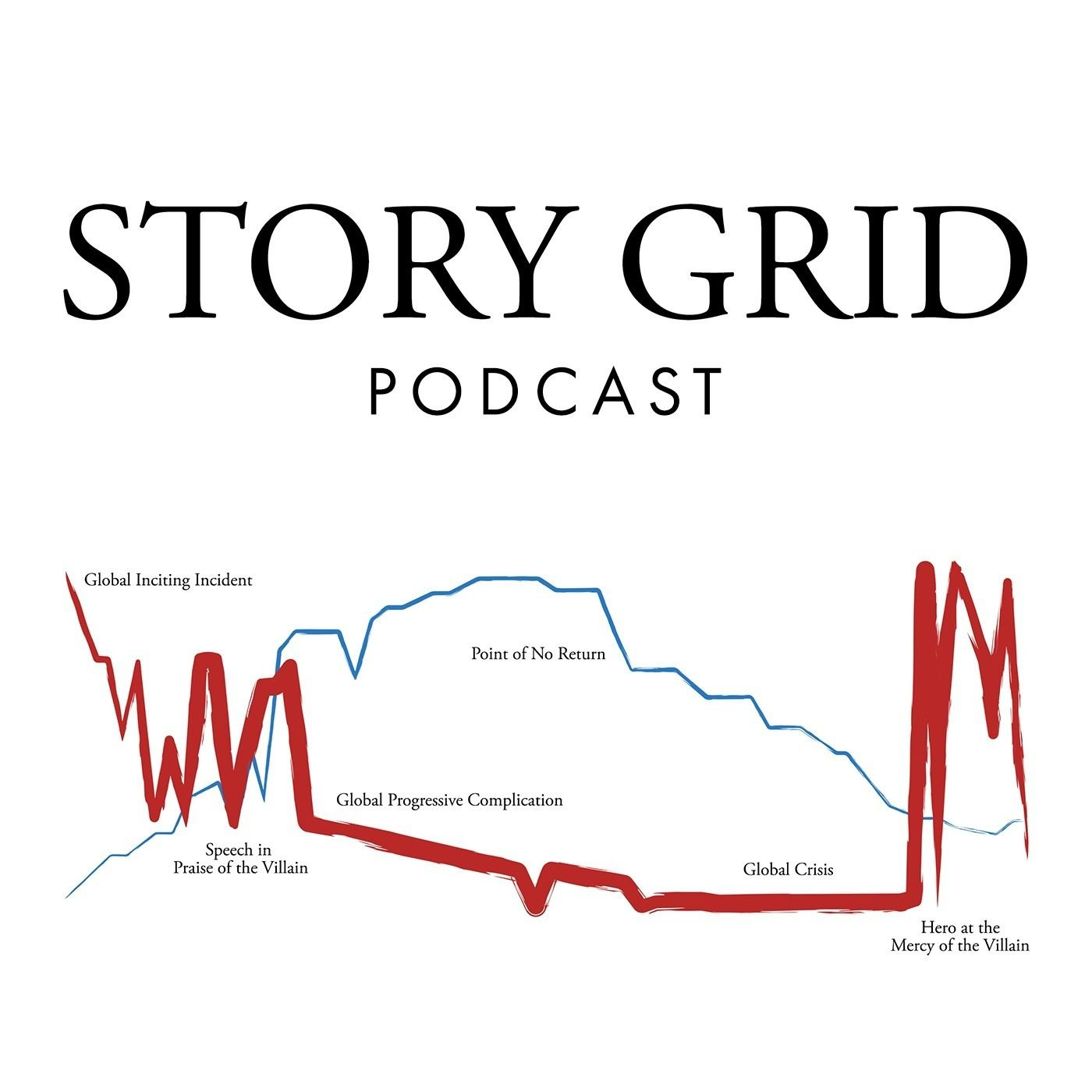

Story Grid Writing Podcast
Shawn Coyne and Tim Grahl
Helping you become a better writer.
Join Shawn Coyne, author of Story Grid and a top editor for 30+ years, and Tim Grahl, struggling writer, as they discuss the ins and outs of what makes a story great.
More at www.StoryGrid.com.
Join Shawn Coyne, author of Story Grid and a top editor for 30+ years, and Tim Grahl, struggling writer, as they discuss the ins and outs of what makes a story great.
More at www.StoryGrid.com.
Episodes
Mentioned books

Oct 13, 2016 • 54min
The Most Important Genre
The podcast discusses the importance and commercial success of the love story genre. It explores the components of romantic love and the significance of love stories. It also delves into subgenres within genres and cultural sensitivities. The chapter ends with an exploration of obligatory scenes in love stories.

Oct 6, 2016 • 52min
Getting the Rewrites Right
Tim finally nails his scene. What changed? And what is the right process for going from draft to a working scene?
Click here to download Tim's scenes from this episode.

Sep 29, 2016 • 50min
Listener Questions and More Rewrites
Shawn and Tim answer a few questions from listeners and then dive into more rewrites of Tim's scenes.
Submit your questions on Twitter @storygrid.
Download Tim's Scene 4 Rewrite.

Sep 22, 2016 • 54min
How to Rewrite Scenes
Learn how to transform ineffective scenes into engaging narratives with practical editing strategies. Discover techniques for mastering scene rewriting by focusing on character perspectives and escalating stakes. Explore the creativity born from blending unrelated skills in storytelling and the unique charm of genre fusion like the space Western. Delve into the art of crafting relatable character interactions and face the challenges of writing under strict guidelines, emphasizing the importance of perseverance and iterative development.

Sep 15, 2016 • 1h 4min
Still... Critiquing Tim's Beginning Hook
Shawn continues working through the Story Grid for Tim's beginning hook.
Downloads for this episode:
[Tim's Beginning Hook Scenes][1]
[Shawn's Notes on Tim's Beginning Hook][2]
[Story Grid Spreadsheet for Tim's Beginning Hook][3]

5 snips
Sep 8, 2016 • 1h 6min
Critiquing Tim's Beginning Hook
Tim, a budding author who just completed the first 11 scenes of his book, engages with the insightful Shawn, who offers critical feedback on his beginning hook. They dive into the challenges of crafting compelling narratives, highlighting the balance of character depth and narrative clarity. They explore societal themes in a dystopian future, discuss the importance of emotional tension, and evaluate character development. The conversation becomes a masterclass in refining storytelling techniques, engaging the audience, and creating an effective narrative hook.

6 snips
Sep 1, 2016 • 48min
Story Grid and Non-fiction
Dive into the world of non-fiction as the hosts explore its four main categories and how storytelling techniques breathe life into academic and how-to writing. They discuss the challenges of narrative non-fiction, especially through the lens of insider trading scandals, revealing moral complexities of characters involved. Personal stories intertwine with broader narratives, showing how family histories shape choices. The art of journalism is also examined, focusing on crafting engaging arcs and the ethical responsibilities of storytelling.

Aug 25, 2016 • 47min
The Great Hedonometer
This week we talk with PhD candidate Andy Reagan who is one of the researchers behind the Hendonometer Shawn and Tim discussed a couple weeks ago. Andy shares where they are at with the research and they discuss the implications for writers in the future.
Check out the Hedonometer.

Aug 18, 2016 • 57min
Turning Pro as a Writer
Transitioning from amateur to professional writing requires consistent practice and resilience against rejection. Discover how reading and learning from established authors can significantly enhance storytelling skills. The importance of mentorship is highlighted, emphasizing the need for respect and research when choosing mentors. The ongoing journey of improving writing through adaptability and diverse reading habits is explored, showcasing how these practices foster creativity and personal growth in aspiring writers.

Aug 11, 2016 • 55min
There are only 6 stories
Research reveals there are only 6 basic stories. They discuss emotional arcs and the importance of imagery and metaphor. Planning the beginning hook and creating a smart villain are also explored. Villains and the progression of the story are emphasized.


